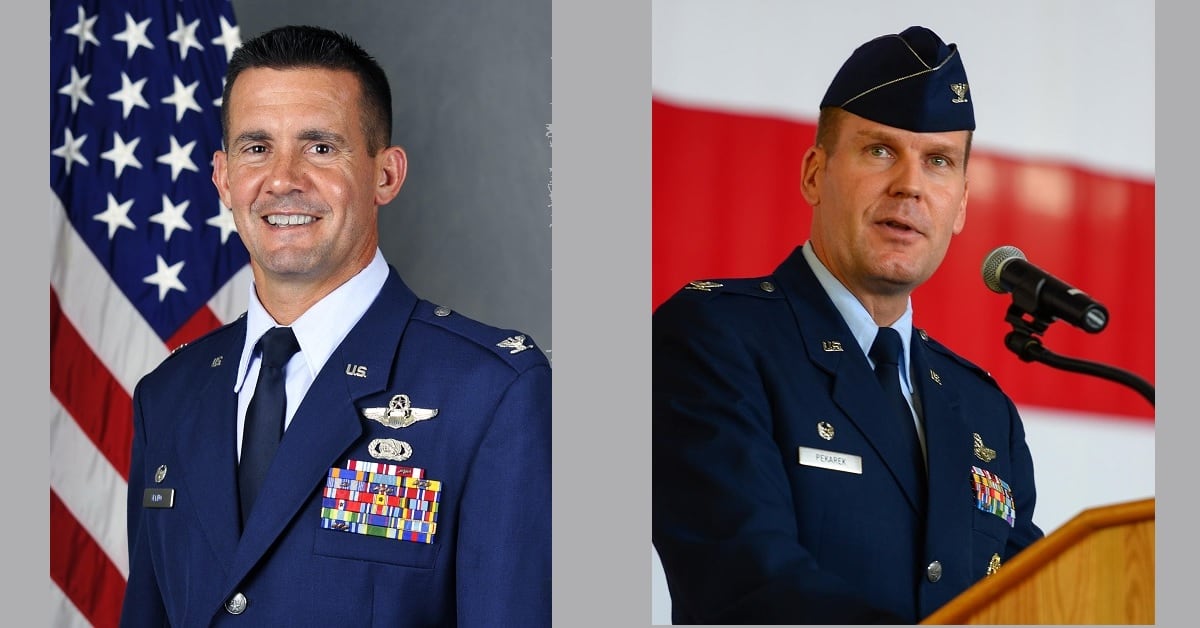The misconduct that led to at least three leaders at the 47th Flying Training Wing to be fired last week included an incident in which a female student pilot was given a vulgar call sign, and an unrelated incident in which a threat was made.
In an email, Air Education and Training Command spokeswoman Marilyn Holliday said that the call sign incident and irresponsible alcohol use were uncovered in the process of investigating unrelated “dangerous behavior and a threatening environment."
The student pilot did not complain about the call sign, Holliday said. But commanders at the wing at Laughlin Air Force Base, Texas, should have addressed the problem, she said, and they did not.
“Failing to intervene or act, when appropriate, is an abdication of leadership responsibilities,” Holliday said. “This was one instance of leaders failing to step in and correct disrespectful and unprofessional behavior."
Holliday said 19th Air Force commander Maj. Gen. Patrick Doherty launched a fact-finding inquiry after learning of the misconduct allegations, which led to an AETC commander-directed investigation. The investigation showed commanders failed to address the incidents appropriately, Holliday said, but would not provide further details to ensure airmen’s due process rights.

“These commanders saw behavior in their wing, in their group, and in their squadron that they knew was inconsistent with our values and they did nothing sufficient about it,” AETC commander Lt. Gen. Steven Kwast said in the email. “It continued and that behavior created a culture where the airmen did not feel safe and they did not feel respected, and it became a cancer that caused problems.”
RELATED

The San Antonio Express-News first reported last week that the pilot was given an inappropriate call sign as part of a drinking ritual involving shots of liquor, and that a threat was made in another case.
Kwast told the Express-News that the female pilot "may have said that she didn’t feel like [the vulgar call sign] was a big deal because she felt like her future assignment might be at risk because the people that have power over her were naming her.”
Holliday said the threat was unrelated to the call sign incident, and had to do with the incidents of dangerous behavior and a threatening environment. She would not provide further details on the threat because some airmen involved are still facing military justice actions.
AETC announced Oct. 31 that wing commander Col. Charles Velino, 47th Operations Group Commander Col. Robert Pekarek, and a squadron commander — who AETC later confirmed was 87th Flying Training Squadron commander Lt. Col. Thomas Allen — had been relieved of command. AETC confirmed a fourth airman was relieved as part of the investigation, but did not identify that person or the person’s job.
Kwast said that leaders throughout the Air Force need to learn from this incident.
“This is an important lesson for all of us, no matter your job in this Air Force or in this command,” Kwast said. “These commanders are good people, but they did not live up to our expectations of commanders and we will hold them accountable.”
Stephen Losey is the air warfare reporter for Defense News. He previously covered leadership and personnel issues at Air Force Times, and the Pentagon, special operations and air warfare at Military.com. He has traveled to the Middle East to cover U.S. Air Force operations.
